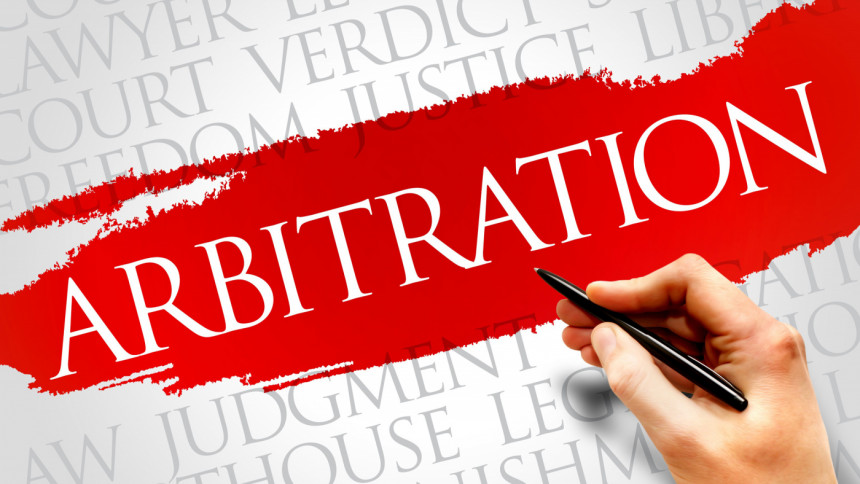Source: https://www.thedailystar.net/news-detail-157272
The appointment of Justice A.B.M. Khairul Haque to the prestigious office of Chief Justice of Bangladesh, superseding two senior judges Justice M.A. Matin and Justice Shah Abu Nayeem M.R., brings to the fore perplexing questions regarding the many alleged ramifications of judicial supersession (judicial appointment disregarding seniority) on the independence of the judiciary. An independent judiciary, as we all know, is vital to the establishment of participatory democracy, maintenance of the rule of law, and delivery of social justice to vulnerable sections of the community. So, is supersession really a threat to that all-important independence? The president, as the head of the executive government, has the power to appoint judges and the chief justice [Articles 95(1) and 48(3) of our Constitution]. In appointing judges, he must comply with Article 95(2), which provides that a person is not qualified for judicial appointment unless he is a Bangladeshi citizen, has been a Supreme Court advocate or a judicial officer in Bangladesh for at least ten years, or meets any other legally prescribed qualification. When appointing judges other than the chief justice, he must also consult and comply with the advice of the prime minister. When appointing the chief justice, there is no consultation requirement, nevertheless, the president always consults the prime minister, as widely reported in the newspapers. There being no other prescribed law for the appointment of judges or the chief justice, the president, strictly speaking, is not constitutionally required to appoint judges in order of their seniority. However, constitutional convention (longstanding political practices which are not legally binding but nevertheless generally accepted) in Bangladesh and in the rest of the Indian sub-continent dictates seniority to be respected in judicial appointments. The Indian Supreme Court has confirmed this convention and discouraged any deviation from it unless “strong cogent reasons” exist. Nevertheless, in our legal tradition, supersession in high judicial offices is hardly a rare phenomenon. In India, in a Habeas Corpus case during the Indian Emergency, Justice H.R. Khanna stated in a landmark dissenting opinion against the government of Mrs. Indira Gandhi that the Constitution did not permit the right to life and liberty to be subject to executive decree. This allegedly cost him his appointment as the chief justice in 1977. In our own country, during the BNP-led four party alliance government, Justice K.M. Hassan and Justice Syed J.R. Mudassir Hussain were successively appointed chief justices in 2003 and 2004, superseding their senior colleagues Justice M. Ruhul Amin and Justice Fazlul Karim respectively. In 2006, President Iajuddin Ahmed, after consultation with Prime Minister Khaleda Zia, appointed Justice M. Joynul Abedin to the Appellate Division superseding three senior judges – Syed Amirul Islam, MD Hassan Ameen and A.K. Badrul Huq. The Supreme Court Bar Association protested alleging politicisation of the judiciary. With the above appointment Justice Syed Amirul Islam was superseded for the fourth time. This is somewhat ironic given his own judgment in a case upholding judicial appointments to the Appellate Division by supersession. His judgment stated that this was not a case of supersession, which can only arise in a case of promotion to a higher post. Appointment to the Appellate Division is not promotion but fresh appointment by the president under Article 95(1). In any case, he observed, appointments should be based on seniority-cum-merit to instil a sense of competitiveness in the judges and ensure elevation of brilliant judges. One could say that there exists a culture of supersession in the Indian sub-continent. Yet, it has and still continues to evoke serious criticism. So what is all the fuss about? Critics of supersession argue that in most, if not all, cases of supersession, judicial appointments have been politically motivated and not merit-based — and there are examples aplenty. Political appointments, they argue, impair the independence of our judiciary [express requirement of Article 94(4)] by making them susceptible to external pressures or controls, thus bringing into jeopardy the entire system of administration of justice. No doubt, an independent judiciary is indispensable in protecting civil liberties against the tyranny of executive powers. But, by apotheosising the independence of the judiciary, we cannot lose sight of the fact that it is not a priori justifiable. The concept must be interpreted within the framework of the Constitution and the independence must be exercised to attain constitutional goals only. Too much insulation from the executive might have the undesirable effect of erecting the ivory tower attitude amongst judges where they distance themselves from society at large. While politically motivated appointments should be denounced, judicial supersession should not be made out to be the monster that it isn’t. When appointing judges their seniority should be kept in mind, provided the judges being considered are at least equally meritorious. Merit should be the pre-dominant criterion, and where a judge possesses outstanding merit he should be appointed even if he is not high in the seniority list. However, a judge’s merit should be broadly construed to encompass his awareness of high priority tasks like eradication of poverty, removal of economic disparity, lifting of the curse of illiteracy and ignorance, protection of the environment and enforcement of human rights coupled with a conscious commitment to deliver socio-economic justice and establish an egalitarian society. The judiciary must keep pace with changing times and reflect popular will if it is to become an effective and viable instrument of change.






